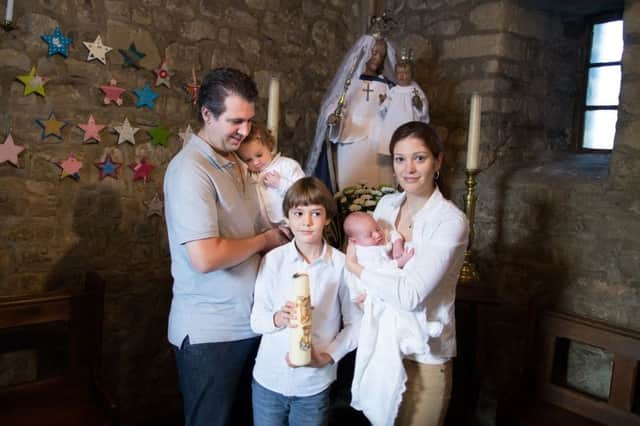Archbishop Leo Cushley: No imposition, just the church's vision


William George Ward was a renowned mid-19th century English mathematician and theologian. He was also a high-profile convert to Catholicism whose fervour was such that he once boldly declared: “I would like to have a Papal Bull every morning with my Times at breakfast.”
While I don’t propose to saturate Scotsman readers with a daily dose of Petrine teaching, permit me, if you will, to place before you just one Papal document that is currently marking it’s 125th anniversary and yet, I would suggest, remains enormously relevant to modern-day Scottish society’s pursuit of the common good.
Advertisement
Hide AdAdvertisement
Hide AdEntitled Rerum Novarum – Latin for Of New Things – this 1891 encyclical by Pope Leo XIII sought to develop traditional Catholic social teaching and apply it to the contemporary ills of a rapidly industrialising society.
At the foundation of Pope Leo’s vision was an unshakable belief in the intrinsic value of every man, woman and child. The measure of any political, moral or economic order was to be the degree to which it threatened or enhanced the life and dignity of the human person. Unbridled capitalism was thus rejected, in short, the bottom line was not the bottom line.
Rather, human dignity was best upheld by two further principles of Catholic social teaching: solidarity and subsidiarity. First, let’s look at solidarity.
In the 19th century, Christianity found itself condemned by the likes of German philosopher Frederick Nietzsche as a bogus religious code concocted by the weak in order to ensnare the strong with “slave morality” concepts such as compassion. Nietzschean notions are rejected by the principle of solidarity. It willingly, even lovingly, stands shoulder-to-shoulder with the most vulnerable in society: the poor, the sick, the elderly, the unborn. The primeval question “Am I my brother’s keeper?” is given a very clear, affirmative response.
How, though, is our compassion to be applied in an ethical and effective way? Enter the principle of subsidiarity. It proposes that neither central government nor any larger society should substitute itself for the initiative and responsibility of individuals and intermediary bodies within civil society. Hence Pope Leo also rejected state socialism as a remedy to the ills of unbridled capitalism. Big is sometimes best, that is true, but small is often beautiful. Take two examples.
From the moment the saintly King David I established royal burghs in the early 12th century, Scotland developed a system of multi-layered government that attempted to vest power at the appropriate local level. This principle led to permutations.
The kingdom of Fife, for example, has gone from having 82 councils at various levels in 1930 to just one, single unitary authority since 1996. As a cleric, it’s not for me to offer concrete solutions to such matters as local empowerment. Thankfully, that’s for those engaged in the political realm to grapple. On the other hand, there does seem to be a renewed appetite to revisit the discussion across all the parties at Holyrood.
Then there’s the most fundamental of subsidiary institutions: the family. The twofold purpose of this micro-community is traditionally defined as the good of the spouses and the procreation and education of children. For this reason, nearly all societies – not just Christian – have founded family life upon marriage. Even now, the best sociological evidence tends to suggest that children generally do best in life when they grow up with a mum and a dad who are married to each other. The married family, if you like, is the first, best and cheapest department of health, welfare and education.
Advertisement
Hide AdAdvertisement
Hide AdOf course, this familial ideal is not always possible in reality. We all know friends – including in our own family – who achieve remarkable things in the most difficult of circumstances. As Pope Francis often rightly reminds us, such families deserve both our sympathy and support.
However, the erosion of a marriage-based culture has too often seen our children, and ultimately all of us, lose out.
The Church does not seek to impose its social teaching upon Scottish society. We can only propose it as our vision to anybody seeking new paths towards the common good. Pope Leo XIII would expect nothing less.
• Archbishop Leo Cushley of St Andrews & Edinburgh